The Bressler Lab is comprised of many talented research scientists from all over the world!
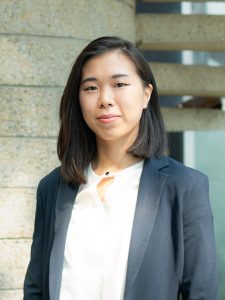
Elisabeth Kezia Widjaja, MSc
Program Coordinator
Elisabeth is the Program Coordinator overseeing the Bressler lab’s finances and administration. Elisabeth obtained her master's degree in Bioresource technology at the University of Alberta through her research on the fermentation of byproduct streams from Air-Current Assisted Particle Separation (ACAPS) technology into bioethanol under the supervision of Dr. Bressler and Dr. Vasanthan. Prior to joining the lab, Elisabeth worked as a clinical research officer in a multinational pharmaceutical company, conducting clinical trials in drug development processes.

Jingui Lan, MSc
Analytical Technician
Jingui Lan has worked as an analytical technician in the Bressler lab since January 2007. He trains and assists postdocs, graduate students, and other researchers with regards to the operation of lab infrastructure, and also maintains and troubleshoots these instruments. He also performs routine lab management activities, oversees laboratory safety, and handles the ordering of supplies for the Bressler lab.
Currently, Jingui Lan is actively involved in two research projects in the Bressler lab:
1) Degradable Baler Twine for Improved Environmental Sustainability and Livestock Safety
2) Design and Preparation of Biodegradable Tackifiers Incorporating Animal Waste Protein

Soniya Naik, PhD
Postdoctoral Fellow
Soniya Naik, a postdoctoral fellow at Bressler’s lab, holds a Ph.D. in chemistry and is currently pioneering research in the bio-jet fuel project. As air transportation demands soar, the development of sustainable aviation fuels becomes increasingly critical. Her work builds on earlier findings that highlighted a substantial boost in branched hydrocarbon yields during lipid pyrolysis, an essential component that enhances jet fuel's freezing point. Her research is in on catalytic isomerization of these renewable hydrocarbons, focusing on synthesizing and characterizing catalysts to improve branching and cold flow properties, thereby meeting aviation industry standards. Pursuing a hydrogen-free methodology, she aims to deepen the understanding of this chemical process and enhance the cost-effectiveness of sustainable aviation fuel production. Her approach holds the potential for significant advancements in energy sustainability, contributing to global efforts to combat climate change.
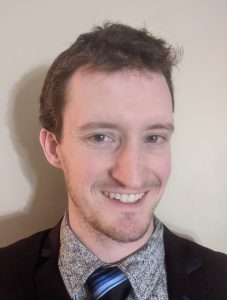
Mark Lawley, PhD
Postdoctoral Fellow
Mark did his PhD thesis in chemical engineering on novel solvent extractions for the biopolymer poly(hydroxybutyrate). As a postdoctoral fellow in the Bressler Lab, Mark’s research looks at the optimization and scaling of bioreactor and downstream process operations for single-cell protein production processes. Single-cell protein has the potential to greatly reduce the carbon intensity and land-use impacts of animal feed while providing a way to valorize byproducts of other processes.
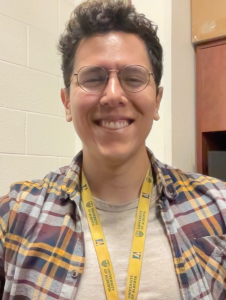
Victor Gonzalez Jimenez
PhD Candidate
Victor is a diligent and forward-thinking PhD candidate, deeply impassioned by the realm of sustainable development, with a specific focus on bioprocess and bioenergy. His academic trajectory commenced with the attainment of a Bachelor's degree in Biotechnology from the Autonomous University of Aguascalientes (Mexico), where he honed a robust foundation in biotechnology. Subsequently, he pursued a Master's degree in Bioprocess and Biological Engineering at the University of Sheffield (UK), immersing himself in preliminary research dedicated to the development of biofuels from genetically modified algae.
At present, he is engaged in doctoral studies at the esteemed University of Alberta, where his research is concentrated on the production of bacterial cultures adept at metabolizing low-value aromatic carbon sources, subsequently transforming them into high-value biomolecules conducive to drop-in fuel development. The goal of his work lies in increasing the sustainable value of a multifaceted process, generating drop-in fuels as its primary output. He is proud to have presented his works at the SPARK 2019 conference in Edmonton, AB, and the LignoBiotech Symposium 2022 in Vancouver, BC.

Andres Merino Restrepo
PhD Candidate
Andrés possesses a robust foundation in Biological Engineering and a Master of Science in Biotechnology from Universidad Nacional de Colombia. His academic path has been enriched by a research internship in the BioGroup at Universidade de Santiago de Compostela, underscoring his global research exposure. Currently, Andrés' research delves into the catalytic isomerization of renewable hydrocarbons. Leveraging the specificity of zeolites and pursuing a hydrogen-free methodology, his work seeks to understand this chemical process and enhance the cost-effectiveness of producing sustainable aviation fuel. This innovative approach promises a transformative impact on energy sustainability and aligns with global efforts to mitigate climate change.
With a research tenure exceeding ten years, Andrés' scholarly contributions encompass the strategic utilization of lignocellulosic materials for pollutant adsorption and the employment of fungal enzymes for the degradation of synthetic dyes. His findings have been disseminated through peer-reviewed international journals, reflecting his dedication to advancing the field of biotechnology. In the realm of academia, Andrés has transcended his role as a researcher to become an educator. His pedagogical journey has taken him from facilitating scientific empowerment in Colombia's indigenous communities to teaching advanced agri-chemical analysis and technical communications in Canada. His commitment to fostering the next generation of scientists is mirrored in his teaching engagements at the Peter Lougheed Leadership College in adaptive and social leadership.
Beyond the laboratory, Andrés is actively involved with the Catholic Students' Association and several social justice initiatives, where his contributions resonate with his advocacy for science, education, and faith. His multifaceted involvement illustrates a commitment to not only scientific inquiry but also to the cultivation of an integrated, socially responsible scientific community.

Bernardo Araujo Souto
PhD Candidate
Bernardo obtained his bachelor’s degree in Chemical Engineering at the Federal University of Itajuba, Brazil. He worked as an undergraduate researcher in organic synthesis, focused on the microwave approach to obtain possible bioactive compounds. After that, Bernardo worked as an intern at the Brazilian Center for Research in Energy and Materials, when he studied the synthesis of bioactive compounds for heart disease. At the end of his undergraduate, he participated in the Mitacs internship when he joined Dr. Bressler’s lab to work on preliminary studies on microwave heating for the Lipid-to Hydrocarbon (LTH) project.
Nowadays, he is pursuing his Ph.D. degree at Dr. Bressler’s lab, working on the bio-jet fuel project. With the increasing demand for air transportation, the investigation of biofuel production for aviation is necessary to develop a sustainable fuel. Previous work at the lab showed the application of short alkene gases enhanced the branched hydrocarbons yield. This essential fuel fraction improves its freezing point, which is a desirable property for jet fuel. In this way, Bernardo’s research is focused on optimizing processes with four-carbon compounds to improve branching and cold flow properties to meet aviation industry standards, using model lipid compounds and the real feedstock. In addition, the study will focus on understating how the structural variability may affect the properties of the bio-jet fuel.

Bingxin Hai
PhD Candidate
In alignment with the global movement towards energy transition collaboration, Bingxin is dedicated to contributing to this transformative effort. Currently pursuing a Ph.D. in Bioresource Technology, her research builds upon prior findings that demonstrated a significant increase in the yield of branched hydrocarbons during lipid pyrolysis when short-chain alkenes are introduced. These hydrocarbons are crucial for enhancing the properties of aviation fuels, such as a reduced freezing point. Bingxin's current focus lies in investigating the reaction chemistries inherent in fatty acids and propylene pyrolysis, with the overarching goal of advancing the viability and competitiveness of sustainable aviation fuels.
Before joining the group, she earned a Bachelor’s degree in Food Science with Honors from the University of Alberta. Along her academic journey, she gained valuable experience through multiple internships in diverse industries, including both the food sector and the energy industry. This background equips her with a holistic perspective as she dedicates herself to the pursuit of innovative solutions within sustainable energy.
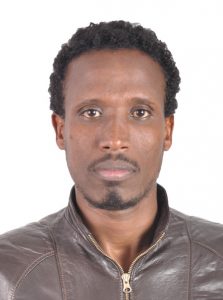
Endriss Ali Umer
PhD Student
Endriss Ali Umer received a Bachelor of Science in Chemical Engineering and a Master of Science in Biochemical Engineering from Addis Ababa University, Ethiopia. He also has a ten-year research and teaching experience in more than six higher institutions, including Addis Ababa University, the first-ranked and oldest university in Ethiopia. He worked as a researcher at Addis Ababa Science and Technology University from 2016 to 2018 under the Ethiopian Ministry of Science and Technology. Apart from this, he did an internship for about four months in the CeraliaFood Complex factory, and he has also taken various international & national level entrepreneurship training. Currently, Endriss is pursuing a Doctoral program in Bioresource and Food Engineering at the University of Alberta under the supervision of Dr. David Bressler, working on the conversion of lipids into bio-jet fuel and improving production efficiency.
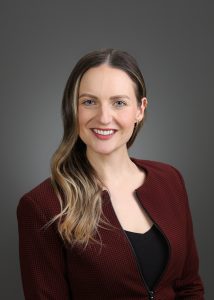
Haley Wolgien-Lowe
MSc Student
Haley obtained her bachelor’s degree in chemistry and biochemistry from Concordia University of Edmonton and also holds a technical diploma in Chemical Technology from the Northern Alberta Institute of Technology in Edmonton. Her undergraduate research involved developing analytical methods for the determination of advanced glycation end products in both laboratory and food matrices. Outside of academia, Haley has extensive work experience undertaking product development of cosmetic, nutraceutical, and food formulations. She also has experience in process development, scale-up, and pilot plant operations of natural health products obtained from working at the University of Alberta’s Agri-Food Discovery Place. Haley is now engaged in a master’s degree in bioresource technology under the supervision of Dr. Bressler at the University of Alberta. Her research addresses the issues around conventional animal feed sources and their implications for global food availability.
The soy and fishing industries are largely devoted to producing protein for animal feed, which contributes to deforestation, strip mining of our oceans, and food insecurity. Given these concerns as well as the growing world population, it is desirable to find alternative sources of animal feed protein so soy and fish can be redirected for human consumption. The Bressler Lab is developing an alternative protein source called single cell protein, which is produced through fermentation of bacteria. Haley’s research focuses on developing a scalable downstream processing system to separate the fermentation product to obtain single cell protein in a form suitable for animal feed.
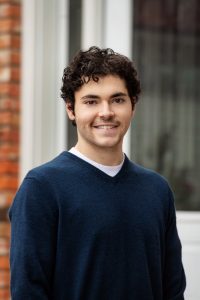
Domenic Marano
MSc Student
Domenic obtained his bachelor's degree in biochemistry from the University of Alberta. His undergraduate research largely involved synthetic biology in the realm of probiotic development and the determination of lipid biosynthetic pathways in Saccharomyces cerevisiae. During his undergraduate degree, Domenic worked as an intern at Teck Resources, where he studied the biorecovery of rare earth metals from mine tailings. At the end of his undergraduate studies, he completed a Mitacs internship in Dr. Bressler’s lab, where he assisted in the operation and development of a novel high-performance single-cell protein continuous fermentation system. Domenic is currently pursuing a master’s degree in bioresource technology under Dr. Bressler at the University of Alberta. His research focuses on valorizing spent fermentation media for recycling, aiming to enhance sustainability and resource efficiency in industrial bioprocessing.

Preston Tran
MSc Student
Preston obtained his bachelor’s degree in Biochemistry with Honors from the University of Alberta. His undergraduate research led him to develop an interest for synthetic biology and its applications in industry. During his studies, Preston worked to modify a diverse array of bacteria, yeast and fungi for purposes ranging from nanobody secretion to biofuel production. More recently, he worked to engineer Aspergillus oryzae to express bovine myoglobin, laying the foundation for a beef alternative. Preston was also part of a team that represented the University of Alberta at the International Genetically Engineered Machine (iGEM) competition, earning a silver medal in 2023. He focused on developing a biological sensor for Fusarium head blight (FHB) in cereal crops utilizing fluorescence and an autonomous drone system. In the Bressler lab, Preston’s work will involve optimizing methanol fermentation for the production of single cell protein (SCP), building on the former ICI Pruteen process.
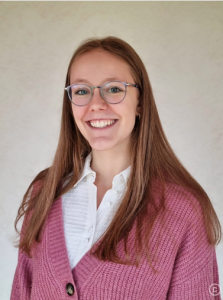
Ines Lamping
MSc Student visiting
Ines is a visiting student from RWTH Aachen University in Germany, where she is pursuing her master’s degree in biotechnology with a focus on chemical engineering. She completed her undergraduate thesis during a MITACS Globalink Research Internship at Simon Fraser University in Burnaby, Canada, where she investigated non-covalent interactions of P450cam variants with camphor and borneol to gain insights into pre-catalytic mechanisms. For her academic performance, Ines received the Badge of Honor from her home university, awarded to the top 5% of graduates in recognition of outstanding academic achievement. As part of her master’s program, she conducted a research internship at the Research Center Jülich (FZJ), Germany, focusing on optimizing exponential biomass growth in Komagataella phaffii by varying specific growth rates.
In spring 2025, Ines joined the Bressler Lab to complete her master’s thesis in the field of sustainable biotechnology, supported by the RWTH Aachen – University of Alberta Junior Research Fellowship. Her research focuses on optimizing microbial single-cell protein (SCP) production using Methylophilus methylotrophus and alternative carbon substrates. She aims to improve yield and efficiency to support the development of scalable, sustainable protein sources for animal feed.
Some of past members:
Research associates and technicians:
- Zakaria Kaal (2025)
- Dr. Sara Ansari (2024)
- Dr. Justice Asomaning (2023)
- Dr. Michael Chae (2022)
- Heather Jimmy (2022)
- Koel Reed (2021)
- Alaleh Boroomand (2020)
- Amin Karkooti (2020)
- Fiona Cromwell (2020)
- Ikuba (John) Ona (2020)
- Nian Sun (2017)
- Julia Prochnau (2017)
- Alexandra Macdonell-Whiddon (2014)
- Garson Law (2013)
Postdoctoral fellows:
- Dr. Marttin Gundupalli Paulraj (2024)
- Dr. Sara Ansari (2024)
- Dr. Jaquelinne Pires Vital da Costa (2024)
- Dr. Aneeshma Peter (2023)
- Dr. Ramesh Arumugam (2023)
- Dr. Fatemeh Bakhtiari Ziabari (2023)
- Dr. Reza Ahmadi (2023)
- Dr. Afees Ayandiran (2023)
- Dr. Lisandra Meneses (2021)
- Dr. Jie Wang (2021)
- Dr. Yeling Zhu (2021)
- Dr. John Hawk (2020)
- Dr. Mahfuzul Hoque (2020)
- Dr. Dawit Beyene (2020)
- Dr. Maryam Hawk (2020)
- Dr. Vinay Khatri (2019)
- Dr. Lizzette Moreno Garcia (2019)
- Dr. Afrooz Farjoo (2018)
- Dr. Mattia Bartoli (2018)
- Dr. Justice Asomaning (2018)
- Dr. Birendra Adhikari (2018)
- Dr. Afrooz Farjoo (2018)
- Dr. Jing Dai (2017)
- Dr. Mehdi Omidghane (2016)
- Dr. Gurpreet Dillon (2014)
- Dr. Archana Parashar (2014)
- Dr. Ali Kebabi (2012)
PhD Students:
- Ronny (Yueh-Hao) Hung (2024)
- Dagem Haddis (2024)
- Jie Wang (2020)
- Tao Shui (2020)
- Dawit Beyene (2019)
- Erin Dul (2015)
- Michael George (2015)
- Maria Espinosa Gonzalez (2014)
- Justice Asomaning (2014)
- Tizazu Mekonnen (2014)
- Yuko Ikeda (2013)
MSc Students:
- Minh Dao (2025)
- Frehiwot Hailu (2024)
- Zakaria Kaal (2024)
- Elisabeth Kezia Widjaja (2023)
- Fantahun Bitew (2023)
- Damaris Okafor (2022)
- Uche (Emanuella) Sea-Nduka (2021)
- Samuel Koranteng (2021)
- Jesse Yuzik (2020)
- Yeye Lu (2019)
- Hector Vargas (2019)
- Chengyong Zhu (2019)
- Susan Haupt (2019)
- Olga Mameeva (2017)
- Lin Xia (2017)
- Yiqiong Jin (2014)
- Koel Reed (2012)
Interns:
- Ana Cristina Flores Martinez (2025)
- Annabel Spencer (2024)
- Domenic Marano (2024)
- Preston Tran (2024)
- Rishika Mohanty (2023)
- Zoe Katharina Heite (2023)
- Annabel Spencer (2022)
- Tania Jael Trucios Ramirez (2022)
- Luis Miguel Salas Chia (2022)
- Krithika Ananthakrishnan (2022)
- Annika Deppe (2021)
- Ethan Woudstra (2021)
- Pahul Sapra (2021)
- Samuel Villeneuve (2021)
- Bernardo Araujo Souto (2019)
- Jing Wu (2019)
- Danyang Cheng (2019)
- Gitanshu Bhatia (2018)